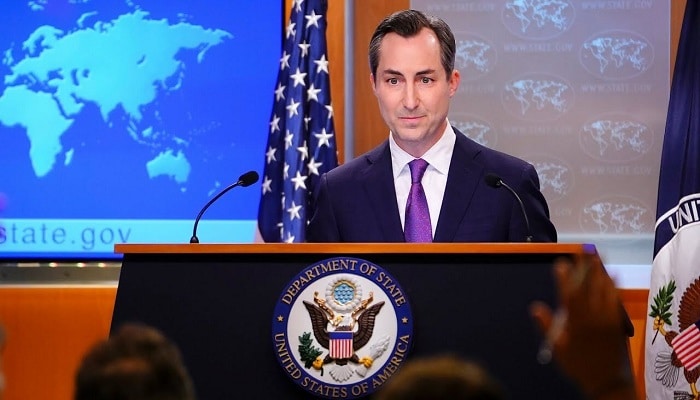PNN – The spokesperson of the US State Department said that Washington has no “immediate” plans to reopen its embassy in Syria.
According to the report of Pakistan News Network from Al Jazeera English, Matthew Miller answered a reporter’s question on Tuesday about the plan to reopen the embassy that was closed in 2012 and declared that Washington has no “immediate” plan to reopen its embassy in Syria.
He said: We do not have an immediate plan to reopen the embassy, but we have clarified the steps we want the Syrian government to take.
After the departure of Bashar al-Assad from power, the United States has repeatedly announced that it is waiting to evaluate the actions of Tahrir al-Sham, the main victorious opposition group in Syria, before deciding how to interact with it.
Miller said: If we see a process that follows our desired principles, we are ready to recognize a Syrian government, and of course, the opening of the embassy is a step that takes place after the recognition of the Syrian government.
Read more:
In another part of his statement, the spokesperson of the US State Department said that his country did not have communication channels with the Tahrir al-Sham delegation in Syria, but it can deliver messages to the groups inside Syria regarding its priorities.
The spokesperson of the US State Department stated that the US cannot support Tahrir al-Sham because it is designated as a foreign terrorist organization.
Miller said: The Tahrir al-Sham board uses the right words, but we will judge them not by those words but by their actions in the days, weeks and months to come.
The spokesperson of the US State Department continued: The delegation of Tahrir al-Sham must answer our questions regarding their goals, the type of future government and the army they want to form.
54 years have passed since the 1971 coup in Syria, which led to the rise of Hafez Assad, and during this time, Syria has always been involved in civil war and armed groups.
Bashar al-Assad, who succeeded his father as president of Syria in 2000, also faced opposition from opposition groups during his rule.
According to Russian sources, after leaving Syria, Bashar Assad and his family went to Moscow, and Russian President Putin granted him and his family political asylum.

